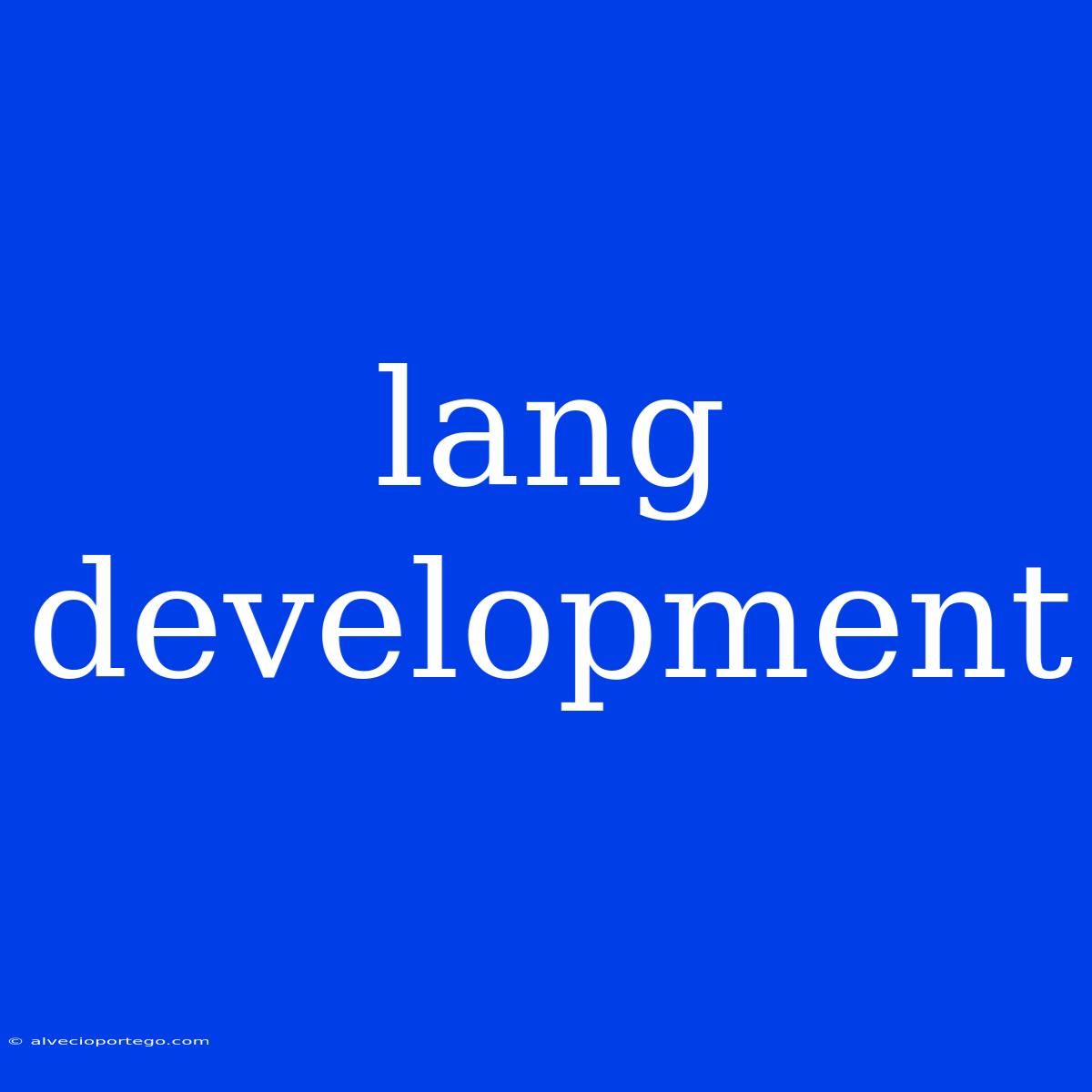The Evolution of Language: A Look at Lang Development
Language is a complex and fascinating system that allows us to communicate, share ideas, and build relationships. It's a dynamic entity that is constantly evolving, and understanding how languages develop is crucial for linguists, historians, and anyone interested in the human mind.
The Roots of Language
The origins of language are shrouded in mystery, with no definitive evidence of when or how it first emerged. However, researchers have developed several theories about language development, including:
- The "Bow-Wow" Theory: This theory proposes that language originated from imitations of animal sounds.
- The "Pooh-Pooh" Theory: This theory suggests that language developed from emotional expressions and interjections.
- The "Yo-He-Ho" Theory: This theory suggests that language developed from the sounds people made during physical labor.
While these theories offer plausible explanations, the exact origins of language remain a topic of debate.
Stages of Language Development
The development of a language can be broadly divided into several stages:
- Proto-Language: This is a hypothetical language that is the ancestor of a family of languages. It is typically reconstructed from evidence from related languages.
- Early Language: This stage is characterized by the development of basic vocabulary, grammar, and syntax.
- Middle Language: This stage sees the development of more complex grammatical structures, vocabulary expansion, and the emergence of different dialects.
- Late Language: This stage is characterized by the emergence of writing systems, standardization of language, and the influence of other languages.
Factors Influencing Language Development
Several factors contribute to the evolution of languages:
- Geographical Isolation: Geographic barriers can lead to the development of distinct languages, as isolated groups of people develop their own unique ways of communicating.
- Migration: Migration patterns can lead to language contact and influence, as people from different language backgrounds interact with each other.
- Social Factors: Social factors, such as political and economic changes, can influence language development, as new words and concepts emerge to reflect the changing world.
- Technological Advancements: Technological advancements, such as the internet, can also influence language development, as new words and phrases are created to describe new technologies and concepts.
The Future of Language Development
The development of language is an ongoing process, and it will continue to evolve in response to changing social, technological, and cultural factors. New technologies, globalization, and the rise of new dialects will all play a role in shaping the future of language.
Understanding language development is essential for appreciating the richness and complexity of human communication. It allows us to better understand the history of language, the relationship between language and culture, and the ongoing evolution of this fascinating aspect of human life.

